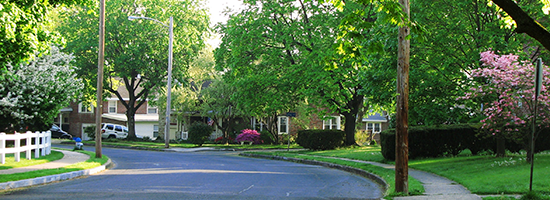THE ROLE OF THE TOWNSHIP
Townships governed by elected boards of supervisors are the most common form of municipal government in Pennsylvania. The townships of the second class represent 56 percent of all general purpose municipal governments in Pennsylvania. The state’s township supervisors govern a combined population of 5.1 million representing 41.7 percent of the state total, more than any other municipal classification. Townships are among the oldest political subdivisions of Pennsylvania. William Penn’s 1681 Charter authorized him to divide counties into towns and hundreds.

The municipality is the focus of governmental legitimacy on the local level. Municipalities are given power and acknowledge the right to use that power to circumscribe individual rights for the good of society at large. People living in society need rules to govern their behavior. Government is the vehicle which writes and enforces these necessary rules. Local government performs this function for the community it governs. Municipal government is acknowledged as legitimate because its officers are chosen in popular elections, and because it is subject to constraints found in written constitutions and laws. Many of these constraints are designed to protect the rights of individuals from undue infringement by the municipality on behalf of society. Municipal government provides the only authentic organized voice for a community. It has an important role in planning for the community’s future development or renewal, finding solutions to present-day problems and conserving important parts of the community’s past in terms of buildings and traditions.
The municipal government speaks for the community to the outside world. This includes state and federal administrative agencies, as well as in the state legislature and Congress. A rapidly growing role is in economic development where the municipal government represents community interests in encouraging or seeking employment-generating economic activities. The municipality provides important community services which are unsuited to private enterprise. Municipalities have traditionally been heavily involved in maintenance of roads, a function of growing importance in a society heavily dependent on the automobile. Municipal governments have the ultimate responsibility for public safety, including police, firefighting and emergency management. Municipalities often provide water, sewer and refuse collection services, although these may also be provided by private firms or municipal authorities. The municipality is the tool for regulation of the quality of life within the community. It can promulgate health and safety regulations to protect citizens and often has a role in enforcing state regulations in this field. The municipality can influence aesthetic factors and amenities which contribute much to the quality of life. This can be done by removal of nuisances, control of noxious activities, control of development through zoning and subdivision ordinances, animal control and other regulatory activities. Through their elected representatives, citizens of a community can have a great deal of control over the general appearance and desirability of the community. This also can be achieved through sponsorship or encouragement of local cultural or recreational activities, such as libraries, museums, concerts, parks, playgrounds, swimming pools, tennis courts, senior citizen centers and other community activities.
